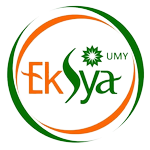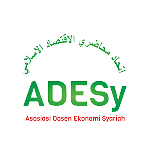ZakÄtÄbility from the Salary of Muslim Civil Servants in Nasarawa State, Nigeria
DOI:
https://doi.org/10.18196/jiebr.v2i1.48Keywords:
ZakÄt; Salary; Cooperative; Society; MuslimsAbstract
This research aims to create awareness among Muslim civil servants that they can pay zakÄt from their savings with the cooperative society. Muslim civil servants who joined cooperative societies in their various places of work, their salary every month and from the source used to be deducted and kept under the custody of the cooperative society. Some save a huge amount of money and leave it alone until retirement, but unfortunately, when the money reaches the prescribed scale (niá¹£Äb) for zakat, many are unaware of giving the right of AllÄh to the beneficiaries. The methodology used in this work was library-based and interviews with the relevant stakeholders. This work is significant in the sense that it would educate those who are not aware of paying zakÄt from their salary that accumulates under the care and trust of cooperative society, and also the researchers can use it as reference material. In conclusion, it encourages Muslim civil servants to always seek knowledge about their money and pay the zakÄt. The findings revealed that the management of the Islamic cooperative society used to inform members when their funds were due for zakÄt. No matter what, we recommend that zakÄt should be paid.
References
‘Abdul-FattÄh, M. M. (2004). Al-Fiqhul-muyassaru minal-Qur’Äni was-sunnah. Vol. 2, Egypt: Dar Al-Manarah.
Al-Madany, M. M., Justice of Islam, El-Mansoura: Dar Al-Manarah, 2010.
Bukhari, M. I. A. (1987). Sahih al-bukhari arabic-english, Vol. 1. (trans), Muhammad Muhsin Khan. New Delhi: Kitab Bhavan.
El-Jazaery, A. J. (2009). The approach of the muslim (minhÄjul muslim). Lebanon: Dar Al-Kotob Al-Ilmiyah.
Gazzali, I. Ihya Ulum – id – Din, Vol. 1, n.p: Al Yassar Ventures, n.d.
Group of Sholars. (2016). Al-fiqhu al-muyassar fÄ« á¸au’il kitÄb was-sunnah, Nasr City: Maktabat Al-Hadyi Al-Muhammadiyyi.
Ibn Rushd, (1996).The distinguished jurist’s primer (BidÄyat al-mujtahid wa nihÄyat al-muqtasid), Vol. II, (trans) Imran Ahsan Khan Nyazee, UK: Garnet Publishing.
Mejida, M. M. (2010). A Survey of the economic history of nasarawa state since 1996, in A. Olayemi et al, (Ed.), Studies in the history and culture of the peoples of nasarawa state, (pp. 246- 258) Zaria: Ahmadu Bello University Press Limited.
Muslim, H. I. (1977). Sahih muslim. Vol. 6. Beirut: Dar Al Arabia.
Nawawi, Y. S., Minhaj Et Talibin A Manual of Muhammadan Law: According to the School of Shafii, New Delhi: Adam Publishers.
Omotosho, A. I. (2010). Islam in Nasarawa State. in A. Olayemi et al, (Ed.), Studies in the history and culture of the peoples of nasarawa state, (pp. 355-370), Zaria: Ahmadu Bello University Press Limited.
Sabiq, A. (1991). Fiqhus-sunnah, Vol. III, U.S.A: American Trust Publications.
Thanvi, Z. A. 1999. Instructions of sharī’ah for women, Karachi – 1: Darul Ishaat.
Downloads
Published
How to Cite
Issue
Section
License
Copyright (c) 2022 Journal of Islamic Economic and Business Research

This work is licensed under a Creative Commons Attribution-NonCommercial 4.0 International License.
Journal of Islamic Economic and Business Research has CC-BY NC or an equivalent license as the optimal license for the publication, distribution, use, and reuse of scholarly work for non-commercial purpose. The non-commercial use of the article will be governed by the Creative Commons Attribution license as currently displayed on Creative Commons Attribution-NonCommercial 4.0 International License
Creative Commons License




